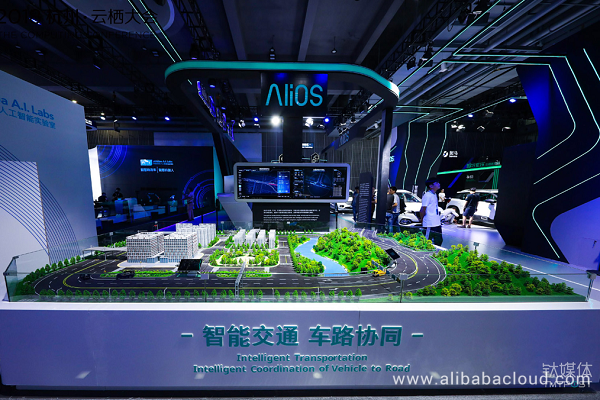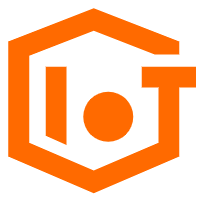
Alibaba's investments on Internet of Vehicles (IoV), including autonomous vehicles of Alibaba DAMO Academy, high-precision maps of Qianxun SI, and the AliOS Banma System, covers almost the entire IoV ecosystem with the exception of automobile manufacturing.
During the Computing Conference 2018 held in Hangzhou on September 20, the Hangzhou Municipal Government issued the city's first license for autonomous vehicle road test to Alibaba. Wang Gang, chief scientist at Alibaba DAMO Academy's artificial intelligence laboratory, received the license plate on behalf of Alibaba's autonomous vehicle team.
The current test section is located in the Artificial Intelligence Town in Hangzhou, the latest in the group's autonomous vehicle developments. Alibaba is accelerating its pace in autonomous vehicle R&D.
In addition to the license for autonomous vehicle road test, which is part of Alibaba's efforts to dig into the automotive sector, Alibaba also announced a plan to upgrade its automotive strategy that aims to use the vehicle-road collaboration technology to build an "intelligent expressway."
This strategy will be implemented by AliOS in cooperation with Alibaba Cloud, Alibaba DAMO Academy, Amap, Alipay, Qianxun SI, Banma Network, etc. to explore the expressway development for the next 20 years.
At the IoV related companies zone of the exhibition area in the Cloud Town, a number of Internet cars were exhibited, including Roewe RX5, the world's first mass-produced Internet vehicle. Most of these vehicles are equipped with the AliOS Banma System.
Alibaba has been developing automotive operating systems since 2014. Its AliOS Banma System, an Internet automobile solution developed in collaboration with SAIC, has been applied to many mass-produced vehicle models of SAIC Group.
Alibaba sticks to a platform-based thinking on its automotive strategy, as it has been trying to build the world's largest Internet vehicle platform for a whole car factory. Alibaba DAMO Academy's Autonomous vehicles, Qianxun SI's high-precision positioning, and Amap's high-precision maps will all be technical guarantees for Alibaba's new automotive strategy.
Specifically, Alibaba will implement this strategy from three dimensions, namely, the cloud control platform, the intelligent sensing base station, and the collaborative computing system. The road test uses Alibaba DAMO Academy's sensing base station technology. AliOS constructs vehicles' sensing and collaborative computing capabilities. The cloud control platform acts as the brain on the cloud.
According to Alibaba's vision, the intelligent expressway will fully support ordinary vehicles, Internet vehicles, and autonomous vehicles, and empower drivers with "clairvoyance" and "clairaudience." The road will tell the vehicle "what it saw", the vehicle will tell the road "what it experienced", and the brain controls the overall situation on the cloud. In this way, the driver, the vehicle, the road, and the cloud are fully coordinated. Even if there is a small pit 500 meters ahead on the expressway, your vehicle can "see" it in advance.
Wang said in his speech that Alibaba lays emphasis on intelligent collaboration of vehicle to road because it has realized the importance of developing autonomous driving from single vehicle intelligence to collaborative intelligence.
Single vehicle intelligence is to empower a vehicle with sensing, decision-making, and control capabilities, so that it can cope with all situations on the road and realize driving based on perception. IoV companies have the similar structure and technical framework for their single vehicle intelligence, including the all-weather and full-scenario centimeter-level positioning, and a large-scale simulation platform that can run tens of thousands of kilometers of testing and simulation per day.
"As the requirements for accuracy are increasingly high, many tests cannot be performed based on single vehicle intelligence, because of challenges including the blind zone, the dead angle, the blocking by obstacles, and the sensing limitation. The best sensing radar can reach tens of meters. If a vehicle runs a little faster, a rear-end collision may occur," said Wang.
Single vehicle intelligence relies heavily on a high-precision map. However, the biggest problem of the map is the immature real-time update. In actual situations, it is impossible to require information acquisition vehicles to update road conditions in real time. If these vehicles break down, it will be rather troublesome. These are very difficult or insurmountable problems for single vehicle intelligence.
Therefore, Alibaba has developed the vehicle-road collaboration system to share intelligence capabilities through the construction of infrastructure such as roads, thus bringing down the overall cost of autonomous driving.
Alibaba's intelligent road test sensing base station is built on roads in the Cloud Town. At present, Alibaba have applied the vehicle-road collaboration technology to its autonomous vehicles and launched several tests on Hangzhou's open roads.
In multiple comparative road tests run previously, when a movable dummy cropped up from behind obstacles, all emergency avoidance commands failed with the vehicle-road collaboration function disabled. On the contrary, these commands worked when the function was enabled.
Why can sensing base stations solve the problem of vehicle-road collaboration? There are three reasons: First, the sensing base stations are so tall that there is no dead angle on the road, so it can see what's going on behind obstacles. Second, immobile roadside sensors can accurately identify what is happening on the road. Third, sensing base stations are interconnected rather than isolated.
"Vehicles and sensing base stations are integrated into a sensing network that enables vehicles to know what is happening on the road ahead, even if thousands of miles away, without any restrictions," said Wang.
In addition, Alibaba has worked with the Research Institute of Highway Ministry of Transport, China Unicom, FAW Group, SAIC Roewe, Intel, Ford Motor, Dongfeng Peugeot Citroen Automobile Company, Datang Telecom Group, etc. to establish the "2038 Super Alliance" to contribute to an "intelligent expressway."
Autonomous driving should be developed in an iterative way, and not all cars can possess this capability in a short time. Data shows that at the end of 2017, China has about 300 million vehicles. If these vehicles are converted into autonomous ones by means of intelligent roads, the hardware cost will be greatly reduced and technologies will be inclusive.
Hu Xiaoming, a senior vice president of Alibaba Group, said that roads are the most important infrastructure for mankind, and the Internet is the infrastructure for the information age. The two infrastructure types are beginning to integrate, and we are going to pave roads on the Internet to build an intelligent expressway.
To learn more about Alibaba Cloud ET Brain family of solutions, visit www.alibabacloud.com/et
Enjoy the Convenience of Containers without Managing Your Server

2,599 posts | 764 followers
FollowAlibaba Clouder - January 2, 2018
Alibaba Cloud Community - March 8, 2024
Alibaba Cloud Community - June 14, 2023
Alibaba Clouder - November 5, 2018
ApsaraDB - September 14, 2023
Alibaba Cloud Community - December 30, 2022

2,599 posts | 764 followers
Follow IoT Platform
IoT Platform
Provides secure and reliable communication between devices and the IoT Platform which allows you to manage a large number of devices on a single IoT Platform.
Learn More IoT Solution
IoT Solution
A cloud solution for smart technology providers to quickly build stable, cost-efficient, and reliable ubiquitous platforms
Learn More Global Internet Access Solution
Global Internet Access Solution
Migrate your Internet Data Center’s (IDC) Internet gateway to the cloud securely through Alibaba Cloud’s high-quality Internet bandwidth and premium Mainland China route.
Learn More Offline Visual Intelligence Software Packages
Offline Visual Intelligence Software Packages
Offline SDKs for visual production, such as image segmentation, video segmentation, and character recognition, based on deep learning technologies developed by Alibaba Cloud.
Learn MoreMore Posts by Alibaba Clouder
Raja_KT March 15, 2019 at 11:49 am
Hoping to see wonderful use-cases in Car, automobile industries resolving many issues of huge population of cars.